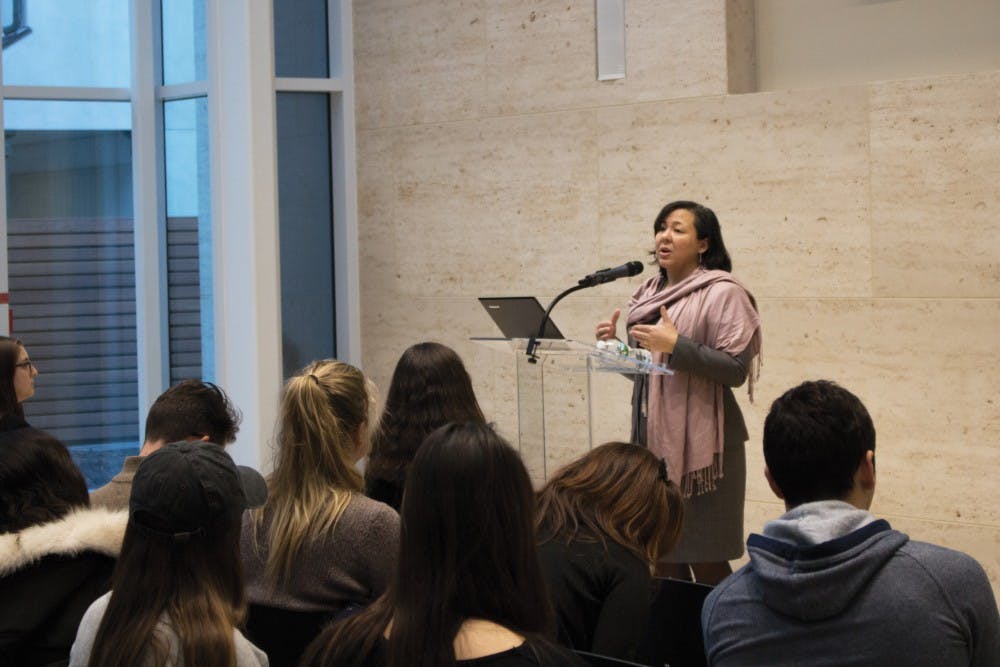
On Monday, students gathered in Perry World House for a discussion about the future of global and domestic human rights.
Executive Director of Amnesty International USA Margaret Huang visited Perry World House to speak about the importance of political activism and freedom of expression at an event organized by the International Affairs Association and the Penn chapter of Amnesty International. She stressed the importance of increasing support for human rights advocacy, particularly following the inauguration of President Donald Trump.
“Over the weekend, following the announcement of President Trump’s executive order banning Muslims from the country, our Twitter following went up by 3 million,” Huang said. “That is critical because the kind of information we are putting out there is how to take action and make a difference.”
College junior Madeleine Jacobs, president of the Penn chapter of Amnesty International and International Affairs Association vice director of academic affairs, also referenced controversy about Trump’s human rights policies.
“We started planning this event before the election, and it became even more relevant after Trump was elected,” she said.
Huang said she questioned the credibility of United States humanitarian interventions in light of controversy about American policy that may violate human rights principles. She also mentioned Trump’s comments regarding waterboarding.
“If we have a president that endorses waterboarding, why would any other country in the world oppose torture?” Huang said.
Speaking about comments the former Exxon Mobil CEO made during his confirmation hearings, Huang also criticized recently confirmed Secretary of State Rex Tillerson.
“We are one of the last remaining political opposition figures to President Putin, yet Russia was not rejected by the U.S. Secretary of State as [a country] that has human rights concerns that should be a focus for U.S. foreign policy,” she said.
She added that health care is a human rights issue, and that Republican efforts to overturn Obamacare call into question the United States’ dedication to domestic human rights.
Wharton freshman Bizzy Vinton said she appreciated Huang’s discussion of “actionable steps” for human rights advocacy.
“I generally think of human rights as some far off legal issues that I can’t advocate for,” she said. “It was exciting to hear about ways that I can make a difference.”
While Huang said Amnesty International has a large body of support, including 1 million members in the United States, to support the organization’s action on human rights, she emphasized the importance of bringing further attention to human rights issues.
“While I am grateful that we have those numbers,” she said. “They are not enough.”
The Daily Pennsylvanian is an independent, student-run newspaper. Please consider making a donation to support the coverage that shapes the University. Your generosity ensures a future of strong journalism at Penn.
Donate







